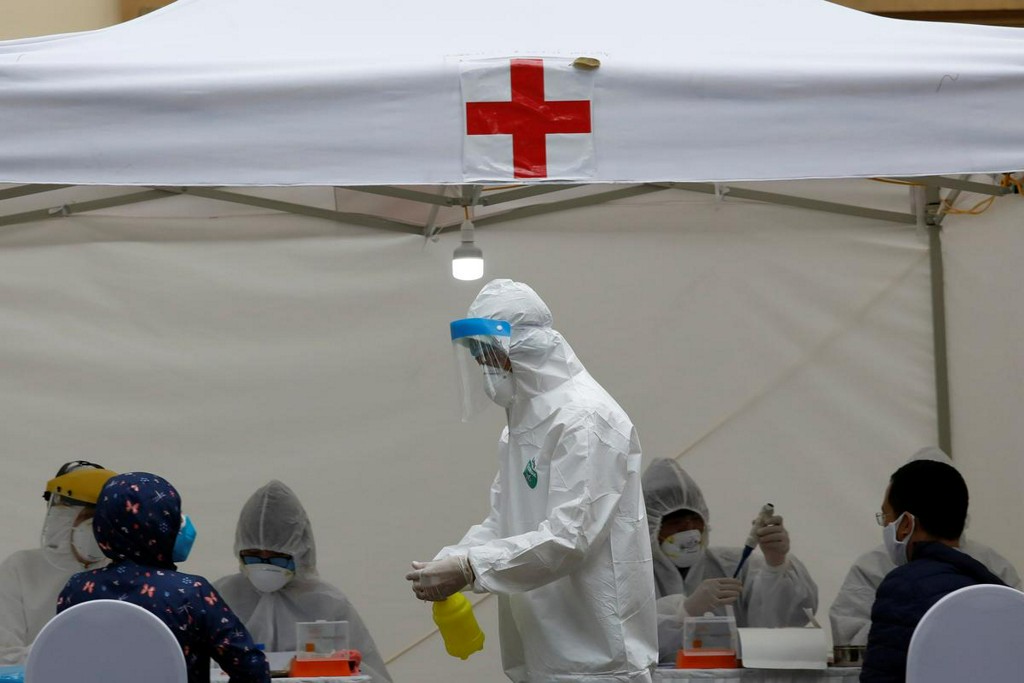Coronavirus
OPINION: Nobody Is Dying Of Covid-19

By Kodi Barth
This is going to light up people. Nobody is dying of Covid-19. People are dying with Covid-19. And there’s a difference. A big one.
This claim was made last week in a Kenyan WhatsApp group chat by mostly communication academics.
If it’s right, The Standard would be wrong in its April 13 front-page story titled, “More than 800-000 Kenyans could die of Covid-19 — Study.” So would Capital News in its April 18 story, “2 Kenyans succumb to Covid-19 in the UK as death toll at home hits 12.” And innumerable media outlets around the world saying Covid-19 is killing people.
The post by one Dr Sam [last name withheld] warned against looming disastrous consequences if with the new coronavirus the world goes down the same path it did with HIV-Aids in the early 90s.
The world has not quite recovered from the stigma associated HIV infections.
“Being Covid-19 positive does not mean death and is not a reason to get stigmatized [much less get clobbered by misguided Kenyan police officers enforcing quarantine],” he said. “Many people will die with Covid-19 and not due to Covid-19.”
This is the good part. And The Standard in its April 14 story, “Covid-19: Five Kenyans died in the US over last month,” would be right by clarifying that the Kenyans “died of Covid-19 related complications.”
What’s really going to light up people are three other maverick opinions by the doctor with a Kenyan last name.
One, that after looking at trends in different countries and studying our own [Kenyan] trends, any medical personnel would tell you that Covid-19 is “a mild infection that most people will recover from without anything to talk about.”
Mild? The body bags in New York and Italy and narratives by survivors who describe “horrible” experiences suggest otherwise.
On the other hand, a model which uses data from the US Center for Disease Control (CDC) now shows that “Covid-19 is more widespread, less severe,” according to an April 14 report by WebMD, an online publisher of health information.
Two, that the obsession with testing and continuous data updates, amplified daily in the media, may result in undesirable consequences: stigmatising people who contract the virus.
That conclusion is open to debate. But the premise is not. You need data to know what you don’t know, to deal with it.
Three, that without downplaying the significance of Covid-19 to some groups of people, healthcare workers should “refuse to let this highly infectious but mild disease take us where HIV did. We lost our mind and followed donors, not medicine.”
This last point ends like a conspiracy theory. But the meat of the entire post is worth debating.
Dr Sam, who said he is now a surgeon, said that as a young doctor in the early 90s he “followed the book” and regrets everyone back then giving up on the sick the instant an HIV diagnosis triumphantly shot up in the air.
He wrote: “The moment HIV was diagnosed, we were to ‘do the necessary,’ meaning the barest minimum to maintain the patient’s comfort as the patient wasted away to a stigmatised and lonely death. We called it palliative care. But it was more of supervised death.”
True, back then few patients diagnosed with HIV lived more than a few weeks. How could they after healthcare workers, friends, relatives and the system gave up on them!
“It took me a while before I realized that many of these patients died with HIV, not of HIV,” said Dr Sam. “The HIV just stigmatized and jeopardized their treatment.”
Here we are today with another pandemic.
The self-described “now wiser” medic worries that patients who are critically ill are increasingly getting tested for Covid-19. And if found positive, the treatment is going the old HIV way: isolation, quarantine, stigma.
The recent undignified handling of a corpse in Siaya County, which was reportedly buried hurriedly with no coffin and no traditional prayers in a shallow grave in the dead of night, paints a perfect picture of stigma.
On the other hand, the rule of thumb on infectious diseases is that isolation saves the living. And gives science time to cure the sick.
The problem: How do you isolate and not stigmatize?
The key argument: That once mass testing becomes the norm, Covid-19 and not underlying conditions will be wrongly blamed for cause of deaths.
This is debatable.
Summary: Do not spread panic; do not justify draconian measures for quarantine; do not stigmatise; do not scare healthcare workers into psychologically giving up on the sick; preach the practice of good hygiene to stem spread of infectious deceases.
These points are valid.
Kenya Insights allows guest blogging, if you want to be published on Kenya’s most authoritative and accurate blog, have an expose, news TIPS, story angles, human interest stories, drop us an email on [email protected] or via Telegram
-

 Grapevine2 weeks ago
Grapevine2 weeks agoRussian Man’s Secret Sex Recordings Ignite Fury as Questions Mount Over Consent and Easy Pick-Ups in Nairobi
-

 News6 days ago
News6 days agoTHE FIRM IN THE DOCK: How Kaplan and Stratton Became the Most Scrutinised Law Firm in Kenya
-

 Investigations1 week ago
Investigations1 week agoMulti-Million Dollar Fraud: Three Kenyans Face US Extradition in Massive Cybercrime Conspiracy
-

 Economy1 week ago
Economy1 week agoIran Demands Arrest, Prosecution Of Kenya’s Cup of Joe Director Director Over Sh2.6 Billion Tea Fraud
-

 Business1 week ago
Business1 week agoA Farm in Kenya’s Rift Valley Ignites a National Reckoning With Israeli Investment
-

 Africa1 week ago
Africa1 week agoFBI Investigates Congresswoman Ilhan Omar’s Husband’s Sh3.8 Billion Businesses in Kenya, Somalia and Dubai
-

 Grapevine3 days ago
Grapevine3 days agoA UN Director Based in Nairobi Was Deep in an Intimate Friendship With Epstein — He Even Sent Her a Sex Toy
-

 Politics2 weeks ago
Politics2 weeks agoSifuna, Babu Owino Are Uhuru’s Project, Orengo Is Opportunist, Inconsequential in Kenyan Politics, Miguna Says
















